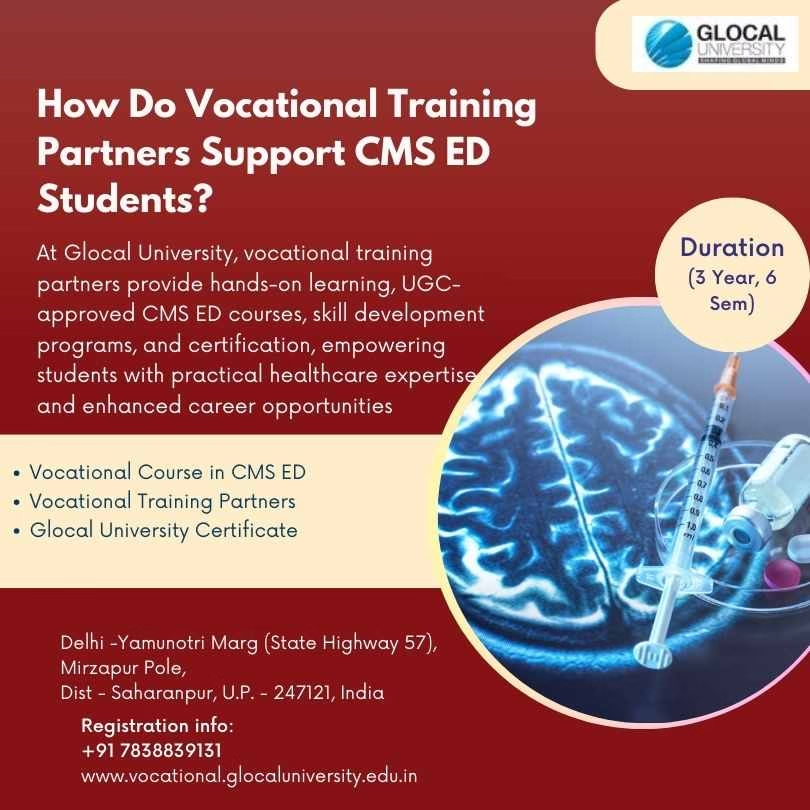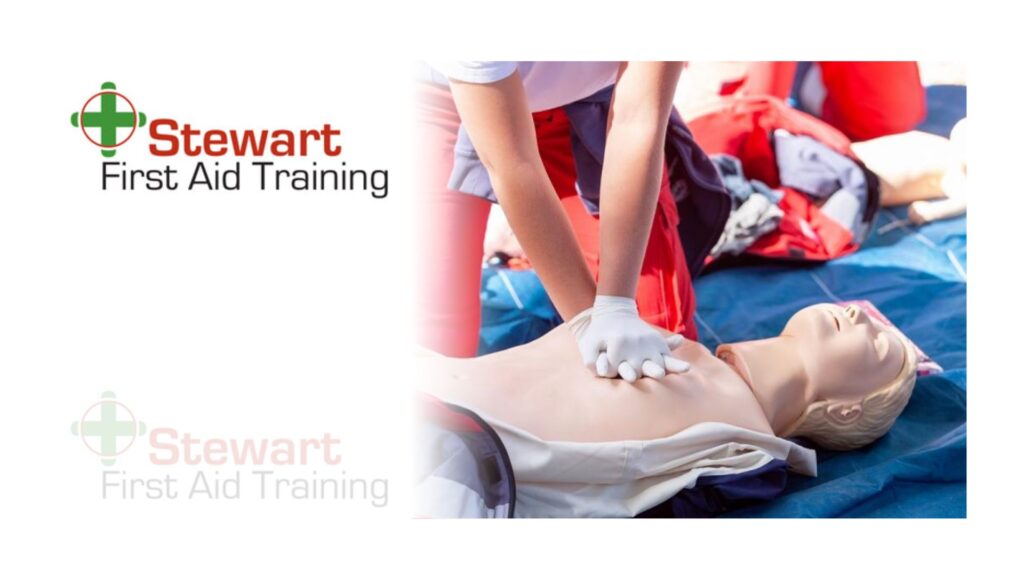Vocational courses, like the CMS ED course, offer hands-on learning that prepares students for real-world challenges. Vocational training partners play a pivotal role in ensuring students gain practical skills and industry exposure. With programs such as the CMS ED course in UGC-approved centres, students receive the knowledge and certifications needed to excel in the medical field.
What is a CMS ED Course?
The CMS ED course focuses on emergency medical services and disaster management. It equips students with essential skills like first aid, trauma care, and disaster preparedness. Students pursuing this course benefit significantly from partnerships with skill development training partners, which enhance their learning experience.
The Community Medical Services & Emergency Disaster (CMS ED) program is an essential vocational course designed to equip students with the skills needed to address medical emergencies and disaster management effectively. As this field demands hands-on expertise and practical knowledge, collaboration with vocational training partners is pivotal in shaping the learning journey of CMS ED students. These partnerships offer students access to real-world experience, mentorship, and industry-specific insights that go beyond traditional classroom education.
At Glocal University, CMS ED students reap the benefits of robust collaborations with skill training and vocational partners. From practical exposure to certification, these partnerships play a vital role in preparing students for success in the healthcare sector. Below, we explore the various ways in which vocational training partners support CMS ED students.
1. Enhanced Practical Training
Theoretical knowledge alone is not sufficient in fields like emergency medical services. Vocational training partners help bridge this gap by offering hands-on training opportunities in real-world healthcare and emergency settings. Students in the vocational course in CMS ED can work in hospitals, disaster relief organizations, and emergency response units, gaining experience in dealing with trauma care, first aid, and emergency preparedness.
Through these training programs, students develop core competencies in handling medical emergencies, operating essential medical equipment, and managing disaster scenarios. Glocal University vocational programs collaborate with training partners to ensure students are exposed to the best practices and industry standards.
2. Skill Development for Real-World Challenges
Skill development training partners focus on equipping CMS ED students with the critical skills required to excel in emergency medical services. These partners provide targeted training in key areas such as patient care, disaster response coordination, and the use of medical equipment.
The CMS ED course in UGC approved centres at Glocal University ensures that students are not only academically prepared but also practically competent. Vocational training partners help students refine their skills through workshops, drills, and simulations, enabling them to respond effectively to real-life emergencies.
3. Mentorship and Industry Guidance
One of the most significant benefits of vocational training partnerships is the mentorship students receive. Industry professionals and healthcare experts associated with training partners guide students through their educational journey. This mentorship helps students gain insights into the intricacies of the healthcare sector, from technical skills to interpersonal communication.
Students in the CMS ED course at Glocal University benefit from mentorship programs that prepare them for the challenges of emergency medical services. Mentors provide career advice, share industry experiences, and support students in building confidence and competence in their chosen field.
4. Access to Advanced Tools and Technology
Emergency medical services and disaster management require familiarity with advanced tools and technologies. Vocational training partners provide CMS ED students with access to state-of-the-art equipment and facilities, ensuring they are well-versed in using modern medical tools and systems.
For instance, students may receive training on automated external defibrillators (AEDs), advanced trauma kits, and disaster response technologies. These tools are critical for effective medical intervention during emergencies. Glocal University’s collaboration with vocational training partners ensures that students gain practical experience in using such equipment, making them job-ready.
How Vocational Training Partners Support CMS ED Students
Practical Learning Opportunities
Vocational training partners provide CMS ED students with practical training in real-world scenarios. They collaborate with hospitals, clinics, and disaster management units to offer hands-on experience. This exposure ensures students can handle emergencies confidently and professionally.
Skill Development for Real-World Challenges
Through skill training partners, CMS ED students develop crucial competencies, including patient care and equipment handling. These skills are essential for success in the healthcare industry.
Access to Advanced Tools and Technology
Vocational training partners ensure that students learn using the latest medical tools and technologies. This training bridges the gap between theoretical knowledge and practical application, making students industry-ready.
Certification Benefits for CMS ED Students
Earning a vocational training certificate validates the skills and knowledge acquired during the CMS ED course. Recognized by industry leaders, these certificates open doors to numerous career opportunities.
Glocal University Vocational Training
Glocal University vocational programs stand out for their integration of academic excellence and practical training. CMS ED students benefit from the university’s collaborations with top-tier vocational training partners. The university ensures students receive up-to-date training, certifications, and job placement support.
Job Placement Opportunities
Vocational training partners often have strong industry connections. They assist CMS ED students in securing roles in hospitals, emergency response units, and healthcare organizations. Glocal University provides additional support through its career services.
Workshops and Seminars for Enhanced Learning
CMS ED students also gain access to workshops and seminars. These events, organized by vocational training partners, focus on specialized topics like disaster risk management and trauma care.
Why Choose CMS ED Vocational Courses?
The CMS ED certificate enhances a student’s credibility, making them more employable. With the guidance of vocational training partners, students gain a competitive edge in the job market.
Conclusion
Vocational training is a game-changer for CMS ED students. It provides practical knowledge, real-world experience, and recognized certifications. Institutions like Glocal University ensure students have the tools and support needed for a successful career in healthcare and emergency services.




